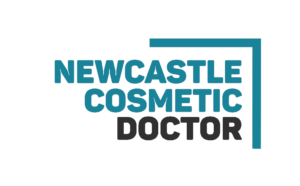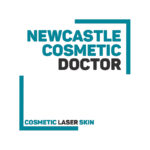Applies to: All Clinical Staff, Supervisors & Governance Committee Members
1. Purpose
This SOP establishes a structured peer review and case discussion process at Newcastle Cosmetic Doctor (NCD) to support reflective practice, clinical learning, and governance oversight. It ensures compliance with Ahpra CPD standards, NSQHS Clinical Governance frameworks, and Australian Medical Council principles for professional reflection and improvement. Peer review promotes accountability, identifies learning opportunities, and enhances patient safety through collective insight 1 2 6 9.
2. Scope
Applies to all clinicians performing cosmetic injectables, laser/energy-based procedures, prescription therapies, and patient consultations. It governs routine peer review sessions, complication reviews, morbidity/mortality (M&M) meetings, and reflective learning activities as part of NCD's Continuous Quality Improvement (CQI) and risk management programs 2 3 5 7.
3. Governance Framework
The Medical Director chairs quarterly peer review sessions and appoints a Peer Review Lead. Reviews are conducted under a just culture framework—focusing on systems improvement, not individual blame. Case selections include adverse events, near-misses, clinical innovations, or complex ethical scenarios. Findings are recorded in governance minutes, integrated into the CQI Plan, and used to inform staff education 1 2 7 8.
4. Meeting Format & Documentation
Each peer review meeting includes:
- Case Presentation – anonymised clinical overview, history, interventions, and outcomes
- Discussion – multidisciplinary feedback and evidence review
- Recommendations – documentation of learning points, protocol changes, or escalation actions
Minutes are confidential but auditable under NSQHS and Ahpra guidance. Attendance is mandatory for credentialed practitioners and contributes to CPD Category 2 or equivalent reflective practice hours 1 2 9.
5. Reflective Practice & CPD Integration
Clinicians are required to complete post-session reflections summarising learning outcomes and intended changes in practice. Reflections are logged for CPD verification under the Medical Board of Australia's 50-hour CPD framework. The Governance Committee monitors completion rates and identifies recurrent themes for future policy updates or additional training 6 9 3.
6. Confidentiality & Professional Conduct
All participants must maintain confidentiality regarding discussed cases. Any identifiable information is removed unless disclosure is required under law or patient consent. Professional conduct during review sessions must align with AMC and Ahpra codes of conduct—fostering respect, collegiality, and constructive feedback 1 6 9.
7. Learning Integration & System Improvement
Insights from peer review feed into the risk register, training priorities, and SOP revisions. Trends such as recurring injector complications or device safety concerns are escalated through the Clinical Governance Committee for corrective action. These findings are reflected in annual CQI reports and published quality statements where appropriate 2 5 7 8.
8. Escalation & External Reporting
If a peer review identifies potential breaches of professional conduct, unsafe practice, or systemic risks, the matter is escalated to the Medical Director. Significant concerns may be referred to Ahpra, HCCC, or the insurer under mandatory notification principles. Lessons learned are shared anonymously within the practice to improve transparency and safety 1 2 10.
9. Review & Version Control
This SOP is reviewed annually or after major regulatory changes. Updates are approved by the Medical Director and disseminated to all staff, who must acknowledge review and understanding before implementation 1 2.
- Ahpra/Medical Board of Australia, Guidelines for registered medical practitioners performing cosmetic procedures., viewed 28 October 2025, https://www.ahpra.gov.au/Resources/Cosmetic-surgery-hub/Cosmetic-procedure-guidelines.aspx ↩
- ACSQHC, National Safety and Quality Health Service (NSQHS) Standards (2nd ed.)., viewed 28 October 2025, https://www.safetyandquality.gov.au/standards ↩
- Royal Australian College of General Practitioners (RACGP) (2023), Standards for general practices (5th edition): Introduction, viewed 28 October 2025, https://www.racgp.org.au/running-a-practice/practice-standards/standards-5th-edition/standards-for-general-practices-5th-ed/introduction-to-the-standards-for-general-practice ↩
- ACSQHC, Clinical Governance Standard: Continuous Improvement., viewed 28 October 2025, https://www.safetyandquality.gov.au/standards/nsqhs-standards/clinical-governance-standard ↩
- Australian Medical Council, Professional Performance and Reflection Principles., viewed 28 October 2025, https://www.amc.org.au/ ↩
- NSW Health, Clinical Governance and Patient Safety Framework (PD2017_043)., viewed 28 October 2025, https://www1.health.nsw.gov.au/pds/ActivePDSDocuments/PD2017_043.pdf ↩
- Institute for Healthcare Improvement (IHI), Model for Improvement and PDSA Cycles., viewed 28 October 2025, https://www.ihi.org/resources/Pages/HowtoImprove/default.aspx ↩
- Medical Board of Australia, Continuing Professional Development (CPD) Registration Standard., viewed 28 October 2025, https://www.medicalboard.gov.au/Registration-Standards.aspx ↩
- Health Care Complaints Commission (HCCC) NSW, Complaint Management and Resolution., viewed 28 October 2025, https://www.hccc.nsw.gov.au/ ↩


